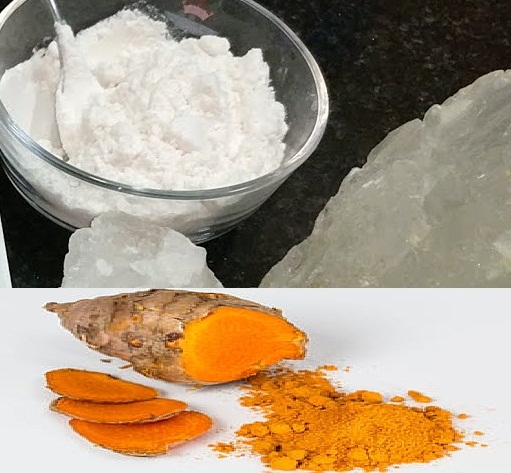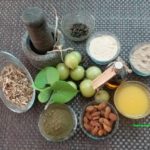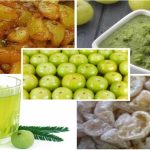I feel elated to pen down my experience and jewels of wisdom on the importance of turmeric and rock salt for toothache. Pain is body’s way to make you aware that something is wrong inside that needs your immediate attention and that neglect won’t be tolerated anymore. Talking about our teeth, I think it is the most neglected part of our human body. The problem is we don’t follow oral hygiene on a regular basis and the result is toothache followed by frequent dentist visits. Today I am going to write about how toothache and frequent dentist visits can be avoided by using turmeric (Haldi) and rock salt (Sendha namak) as miracle remedies as part of our daily oral care regimen.
Using turmeric and rock salt for toothache along with mustard oil is a phenomenal combination. Massaging the teeth daily at night with this paste gives relief in many tooth ailments such as pyorrhea, swollen gums, loose teeth, bleeding from teeth on brushing, bad breath. Turmeric and rock salt for toothache is a tried and tested remedy. It is scientifically proven in improving gingival and periodontal health. Let us understand this interesting first aid remedy in detail. Keep reading.
Why Turmeric and Rock salt for toothache?
Importance of Turmeric in oral care
The urge to resort to natural plant based remedies arises from the need to avoid the side effects that comes from the use of conventional drug therapies. One such useful natural remedy is turmeric which has proved its beneficial effects since time immemorial. We are all aware of its anti-inflammatory, antioxidant, antiseptic and antimicrobial properties. It is a highly therapeutic herb both in powder and essential oil form. That is the reason why we are emphasizing the role of turmeric in toothache. It is shown in researches that its active compound, ‘curcumin’ has a role in treating oral cancers as well. Now let’s see how to use turmeric in oral care.
How to use Turmeric in oral care:
- Tooth massage with a pinch of turmeric powder relieves pain and swelling.
- Turmeric Mouthwash: Research has shown that turmeric mouthwash can control plaque and gingivitis due to its anti-inflammatory and antimicrobial action.1 Turmeric mouthwash can be prepared by adding a pinch of turmeric powder in 1/4th glass of water OR 1 drop of turmeric essential oil in 1 glass of water. (Please note that essential oils are always mixed in carrier oil before adding in water. So take 1 drop of coconut oil in a spoon and add 1 drop of turmeric oil in it and then mix it in a glass of water to use). You can even add 1 drop of peppermint essential oil. Rinse your mouth with this mouthwash daily at bedtime.
Importance of Rock salt in oral care
Let us understand the role of rock salt for toothache. Rock salt being alkaline raises the ph of saliva and acts as a bacteriostatic agent i.e. it inhibits bacterial growth in mouth.2 A randomized controlled study of 30 participants conducted in 2017 concluded that salt water was as effective as chlorhexidine in reducing dental plaque and oral bacterial growth in the saliva. Therefore salt water can be used as a prophylactic antiplaque agent for routine use.3 Now let us see how to use turmeric and rock salt for toothache.
How to use Turmeric and Rock salt for Toothache?
This is the fastest way of stopping a toothache at home in my experience.
- Rock salt, turmeric and mustard oil paste: Grind the rock salt very finely. Bring it to the consistency of white flour (maida). Now, sieve it through a cloth. Then, take a pinch (2 gms) of this sieved rock salt on your palm. Add a pinch of turmeric powder. Add 4 times the mustard oil drops to it. Now, massage your teeth and gums with this paste. Keep spitting the saliva that gets accumulated in your mouth for 10-15 min. Avoid drinking water for half an hour after this. If you massage your teeth and gums with your fingers regularly with turmeric and rock salt paste daily morning and night, it can relieve many tooth problems such as toothache, bleeding gums, sensitive teeth, pyorrhea, plaque, bad breath, loose teeth etc. Its regular use helps in strengthening the teeth.
- Rock salt mouth wash: Add one and a half teaspoon of rock salt in one glass of lukewarm water. Rinse your mouth with this saline water daily before going to bed. This saline rinse promotes a natural healing process in the following way. The salt solution is hypertonic i.e. the concentration of solute in the surrounding environment is more than the cytoplasm of the bacteria in the mouth. Due to this, water from the cell moves out by the process of osmosis. Subsequently the oral bacteria die of dehydration almost within a minute.
Other useful method other than Turmeric and rock salt for toothache
Oil pulling: Oil pulling is an age old ayurvedic technique of maintaining oral hygiene as well as overall health. It can cure a variety of diseases such as headache, diabetes, dental caries, gingivitis, periodontitis, bad breath etc. Oil pulling detoxifies and purifies our body. Oil absorbs or sucks all toxins (chemical, bacterial, environmental) from the blood which are then removed through saliva in mouth. In Ayurveda, oil pulling is traditionally referred as ‘kavala’ or ‘gandoosha’. The difference between the two is that in gandoosha, mouth is completely filled with the medicated liquid until tears and nasal discharge comes out and then the patient should spit it out. Whereas, in kavala, the mouth is filled three fourth with the medicated drug, which can be rotated in the mouth for some time and then allowed to spit it out4.
Oil pulling is ideally best performed using cold pressed oils. And sesame oil is said to be the best preferred oil for oil pulling and claimed to reduce plaque and gingivitis. It has anti-oxidant and antibiotic action. Coconut oil can also be used for oil pulling. Its antiseptic properties and high saponification index makes it a good cleansing agent.
What is the procedure for oil pulling?
- Take a tablespoon full of cold pressed oil in your mouth. Do not swallow it.
- Slightly swish the oil around in your mouth.
- Do this for 20 minutes. If the jaw aches, you can start with 5 minutes initially and gradually increase the time.
- As you will pull the oil in between your teeth by swishing it around in your mouth, you will notice, the oil will become thinner and milky white.
- Now spit it out and rinse your mouth thoroughly with warm water.
- Lastly, brush your teeth as usual.
- Oil pulling should be done ideally early morning empty stomach before brushing your teeth.
- Care should be taken not to swallow the oil as it contains toxins.
- You can even add essential oils and make your oil pulling blend. For e.g. 1 drop each of clove oil, lemon oil and orange essential oil in 1 tablespoon of coconut oil or sesame oil or olive oil.
If oil pulling method is followed correctly and regularly, oral hygiene starts improving within 2 weeks.
There are many anecdotal evidences in favor of turmeric and rock salt for toothache. It strengthens the teeth. People following this dental care regimen since childhood enjoy healthy teeth in old age. The only prerequisite is that the rock salt should be as fine as the consistency of white flour (maida). Even massaging the teeth and gums with mustard oil alone followed by mouth rinse with warm saline water (containing rock salt) gives unexpected relief in many dental problems. In pyorrhea and dental caries, you can also add paste of Neem leaves in the warm saline water to rinse your mouth. Alternatively you can use Neem datun (twig) in place of your regular brush.
References
- Nagpal M, Sood S. Role of curcumin in systemic and oral health: An overview. J Nat Sci Biol Med. 2013;4(1):3–7. doi:10.4103/0976-9668.107253. [Pubmed]
- Chacko K. et al.Comparison between the effect of commercially available chemical teeth whitening paste and teeth whitening paste containing ingredients of herbal origin on human enamel. Ayu. 2018 Apr-Jun; 39(2): 113–117. [Pubmed]
- Aravinth V, Aswath Narayanan M B, Ramesh Kumar S G, Selvamary A L, Sujatha A. Comparative evaluation of salt water rinse with chlorhexidine against oral microbes: A school-based randomized controlled trial. J Indian Soc Pedod Prev Dent 2017;35:319-26. [Pubmed]
- Shanbhag VK. Oil pulling for maintaining oral hygiene – A review. J Tradit Complement Med. 2016;7(1):106–109. Published 2016 Jun 6. doi:10.1016/j.jtcme.2016.05.004 [Pubmed]





Recent Comments